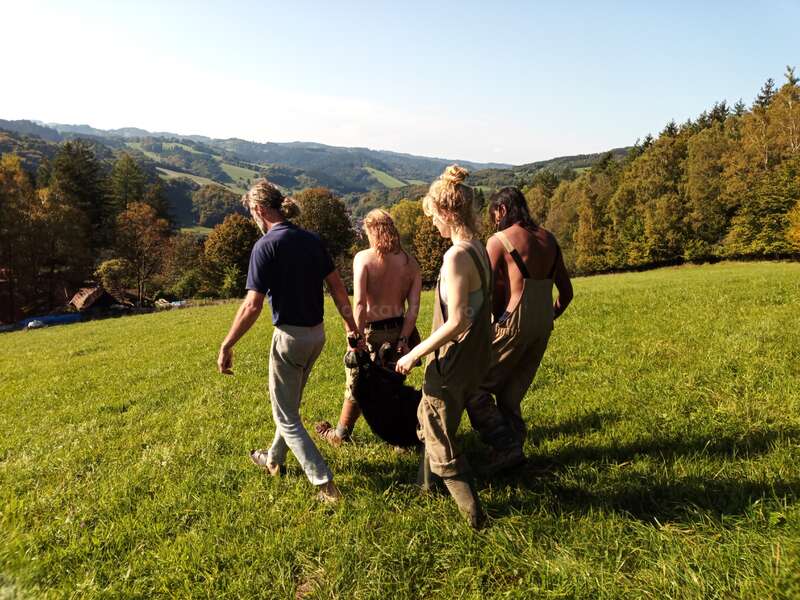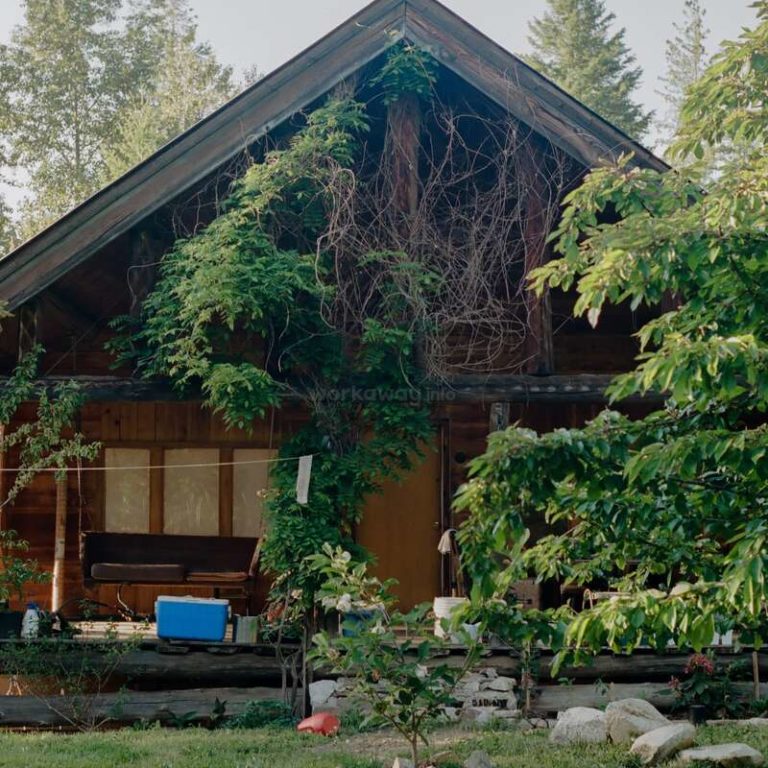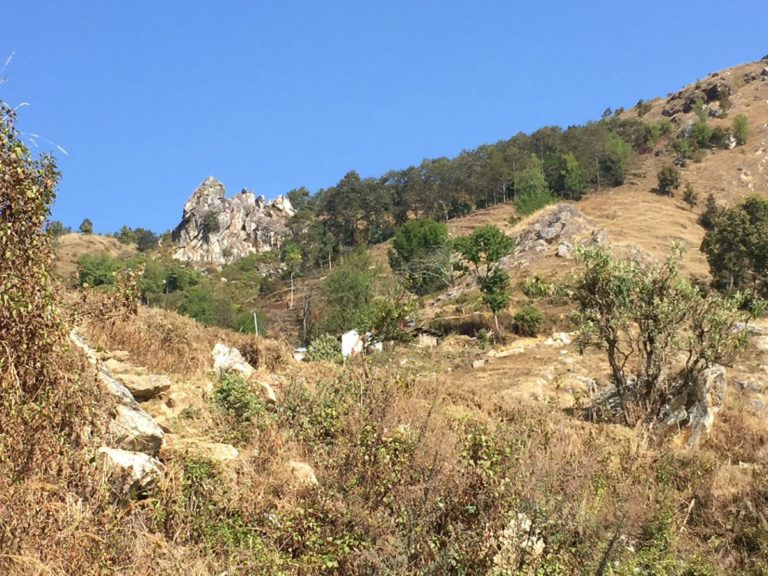Living off the grid can be a dream come true for many, offering the opportunity to disconnect from the hustle and bustle of city life and live in harmony with nature.
However, it also presents unique challenges that require graceful adaptation to thrive.
From unexpected power outages to unpredictable weather conditions, off-grid living demands flexibility and a willingness to problem solve on the fly.
We’ll explore the strategies and mindset needed to navigate these challenges with grace and resilience, making your off-grid dream a reality.
Embrace the unknown
Life off the grid can be unpredictable, and things don’t always go as planned. Learn to embrace the unknown and roll with the punches.
The grid provides a sense of stability and consistency that is often lacking when living off the land.
Without the reliability of electricity, running water, and other modern conveniences, life can be unpredictable and full of surprises.
But, it can also be an opportunity to cultivate resilience, resourcefulness, and a deeper connection to the natural world.
To successfully navigate the unpredictable nature of off-grid living, it’s essential to learn to embrace the unknown and roll with the punches.
This means being flexible and adaptable, and being willing to think outside the box and find creative solutions to unexpected challenges.
It also means cultivating a mindset of gratitude and appreciation for the simple things in life, like a beautiful sunrise, a warm fire, or a hearty home-cooked meal.
In practical terms, this might mean keeping a well-stocked pantry and garden to ensure a steady supply of food, investing in backup power sources like solar panels or a generator, and learning essential skills like first aid, fixing and maintaining equipment, and preserving food for the winter months.
It might also involve developing a support network of like-minded individuals who can offer advice, assistance, and a sense of community.
Ultimately, living off the grid requires a willingness to embrace the unknown and trust in one’s own abilities to adapt and thrive in a challenging environment.
By embracing the unpredictable nature of off-grid living, individuals can develop a stronger sense of resilience, resourcefulness, and connection to the natural world.
Be flexible
The ability to adapt to changing circumstances is key to surviving off the grid. Learn to be flexible and accommodate unexpected challenges.
The ability to adapt to changing circumstances is important for surviving off the grid.
As you navigate the challenges of self-sufficiency, you’ll encounter countless unexpected situations that demand flexibility and creative problem-solving.
Whether it’s a sudden power outage, a broken well pump, or an unexpected change in the weather, your ability to adapt quickly and effectively will determine your success.
By learning to be flexible and accommodate unexpected challenges, you’ll be better equipped to handle the myriad of surprises that come with living off the grid.
This may involve rethinking your infrastructure, seeking out new resources, or finding alternative solutions to your challenges.
The more you practice adapting to changing circumstances, the more comfortable you’ll become with the ever-changing nature of off-grid living.
So, be prepared to think on your feet, be resourceful, and always keep a sense of humor – it’s essential for not only surviving, but thriving off the grid.
Use your resources
When living off the grid, it’s essential to make the most of the resources you have. Use your tools, materials, and knowledge to find creative solutions to challenges.
When living off the grid, maximizing the resources at hand is important for a sustainable and fulfilling lifestyle.
Instead of relying on external sources, utilize your tools, materials, and knowledge to find creative solutions to everyday challenges.
For instance, use rainwater collection systems to harness and store precious water resources.
Implement energy-efficient appliances and renewable energy sources like solar or wind power to minimize your reliance on the grid.
Repurpose and upcycle materials to create unique and functional living spaces.
Embrace the principles of minimalism and self-sufficiency to achieve a more sustainable and financially responsible lifestyle.
By embracing these practices, you can thrive in an off-grid lifestyle while maintaining a high quality of life.
Create a self-sufficient and sustainable living space by leveraging your resources, knowledge, and creativity.
Minimize your carbon footprint and reliance on external sources, while also enjoying the benefits of a simpler, more intentional way of living.
Living off the grid not only reduces your environmental impact but also promotes personal growth, self-reliance, and a deeper connection with nature and community.
Build a support system
Living off the grid can be isolating, so it’s essential to build a support system of friends, family, or fellow off-griders who understand your lifestyle and can offer support and advice.
Living off the grid can be an incredibly rewarding experience, but it can also be isolating at times.
Without access to the main grid, it can be challenging to connect with others who understand your lifestyle and share your values.
That’s why it’s essential to build a support system of friends, family, or fellow off-griders who can offer support, advice, and a sense of community.
By connecting with others who are also living off the grid, you can share knowledge, resources, and experiences that will help you navigate the challenges of this lifestyle.
You can learn from their successes and failures, and they can do the same for you.
Having a support system can provide a sense of belonging and social connection, which is essential for mental and emotional well-being.
One way to build a support system is to join local off-grid communities or online forums where you can connect with others who share your interests and values.
You can also attend workshops and events that focus on sustainable living and off-grid living.
By building a network of like-minded individuals, you can create a support system that will help you thrive in your off-grid lifestyle.
Learn from your mistakes
Everyone makes mistakes, especially when starting a new lifestyle like off-grid living. Learn from your mistakes and use them as an opportunity for growth and improvement.
As you embark on the journey of off-grid living, it’s inevitable that you’ll make mistakes.
After all, this lifestyle is a significant departure from the status quo, and there’s a steep learning curve.
However, instead of viewing these mistakes as failures, try to see them as opportunities for growth and improvement.
Every mistake you make is a chance to learn and refine your skills, allowing you to become a more proficient and self-sufficient off-gridger.
For example, if you encounter issues with your rainwater collection system, use that as a chance to research and experiment with different solutions until you find one that works.
Not only will this help you overcome the challenge at hand, but it will also equip you with valuable knowledge and skills that you can apply to future challenges.
By embracing a mindset of continuous learning and improvement, you’ll be well on your way to a successful and fulfilling off-grid lifestyle.
Take care of yourself
Off-grid living can be physically and mentally demanding, so it’s essential to prioritize your health and well-being. Eat a balanced diet, exercise regularly, and take time for self-care.
Off-grid living, while rewarding and fulfilling, can also be physically and mentally demanding.
To ensure your well-being and sustainability in this lifestyle, it is important to prioritize your health and wellness.
Eating a balanced diet rich in locally-sourced and organic produce, nuts, and seeds can provide the necessary nutrients for energy and sustenance.
Engaging in regular physical activity such as gardening, hiking, or yoga can help maintain strength, flexibility, and cardiovascular health.
Taking time for self-care through meditation, journaling, or simply enjoying nature’s beauty can help mitigate the stresses of living off the grid.
By prioritizing your health and well-being, you can ensure a long-lasting and fulfilling off-grid lifestyle.
Find joy in simplicity
Off-grid living often means simplifying your life and letting go of modern conveniences. Find joy in the simple pleasures of life, like watching the stars, tending to your garden, or spending time with loved ones.
Off-grid living offers an opportunity to reevaluate your priorities and simplify your life.
By letting go of modern conveniences, you can focus on the truly important aspects of living.
Find joy in the simple pleasures of life, like watching the stars on a clear night, tending to your garden as it grows and flourishes, or spending quality time with loved ones.
These are the moments that bring true fulfillment and happiness.
In an off-grid lifestyle, you have the chance to slow down, take a step back, and appreciate the beauty in the everyday.
Say goodbye to the hustle and bustle of city living and hello to a more intentional, meaningful life.
Cultivate mindfulness
Living off the grid requires being present and mindful of your surroundings. Practice mindfulness techniques like meditation, yoga, or deep breathing to help you stay grounded and centered.
Living off the grid demands a heightened sense of presence and mindfulness.
To thrive in this lifestyle, it’s essential to cultivate a deep connection with your surroundings and to be attuned to the rhythms of nature.
Practicing mindfulness techniques such as meditation, yoga, or deep breathing can help you stay grounded and centered, allowing you to more fully embrace the joys and challenges of living off the grid.
Through mindfulness, you can learn to quiet your mind and tune into the subtle sounds and sensations of nature.
This increased awareness allows you to become more intentional and deliberate in your actions, conserving resources and minimizing waste.
You may find that you begin to notice the intricate patterns of the natural world, such as the position of the sun, the changing seasons, and the behavior of local wildlife.
By staying present and mindful, you can create a more sustainable and fulfilling life off the grid.
You’ll be better equipped to navigate the challenges of living in a remote area, from managing your energy sources to dealing with unexpected setbacks.
With a mindful approach, you can transform your off-grid lifestyle into a vibrant and meaningful experience.
Want More? Dive Deeper Here!
Hey there! If you’re the type who loves going down the rabbit hole of information (like we do), you’re in the right spot. We’ve pulled together some cool reads and resources that dive a bit deeper into the stuff we chat about on our site. Whether you’re just killing time or super into the topic, these picks might just be what you’re looking for. Happy reading!






